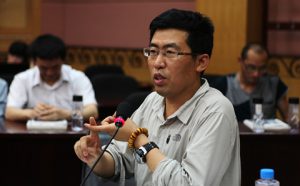There are now (at least) three scenarios how this issue can evolve over the course of this year. In the first scenario, the EU and China do not reach a negotiated agreement and the anti-dumping duty of 47.6% will be enacted in August, followed by a decision of the EU in December 2013, to impose the anti-dumping duty for next five years.
A second scenario, would see prolonged negotiations and heated debates both between China and the EU, and among the EU Member States, with the result that Member States continue their objection and the anti-dumping measures will not be imposed for a five-year period. Chinese manufacturers would still be able to engage in business-as-usual and sell panels at very low prices to the EU.
As a result, many European manufacturers would likely go bankrupt and the fundamental problem of overproduction of the Chinese solar PV sector would not be addressed. Neither of these first two scenarios is desirable as both would negatively impact EU-China relations and cooperation on the transition to a low-carbon economy.
In a third scenario, China and EU engage in the offering and acceptance of "price undertakings" – agreeing that Chinese solar panels would be sold at a certain minimum price in the European market. In this case the anti-dumping duties would not be collected on imports and not go into the pockets of the EU. The benefit of such an agreement would be that Chinese panels sold in the European market would likely still be cheaper, but much more comparable to the price of European panels.
Such an agreement would contribute to addressing the issue of market consolidation and reduction of PV overproduction in China, which the solar industry in China has been suffering from for some time. The sector will see some reshuffling due to excessive production capacity, which would have happened even without the anti-dumping duty.
This does not mean the Chinese government should stop supporting the solar industry. Instead of supporting production focused on export markets, it will make more sense to promote the development of China’s internal market, in particular by creating incentives for decentralised solar PV installations.





